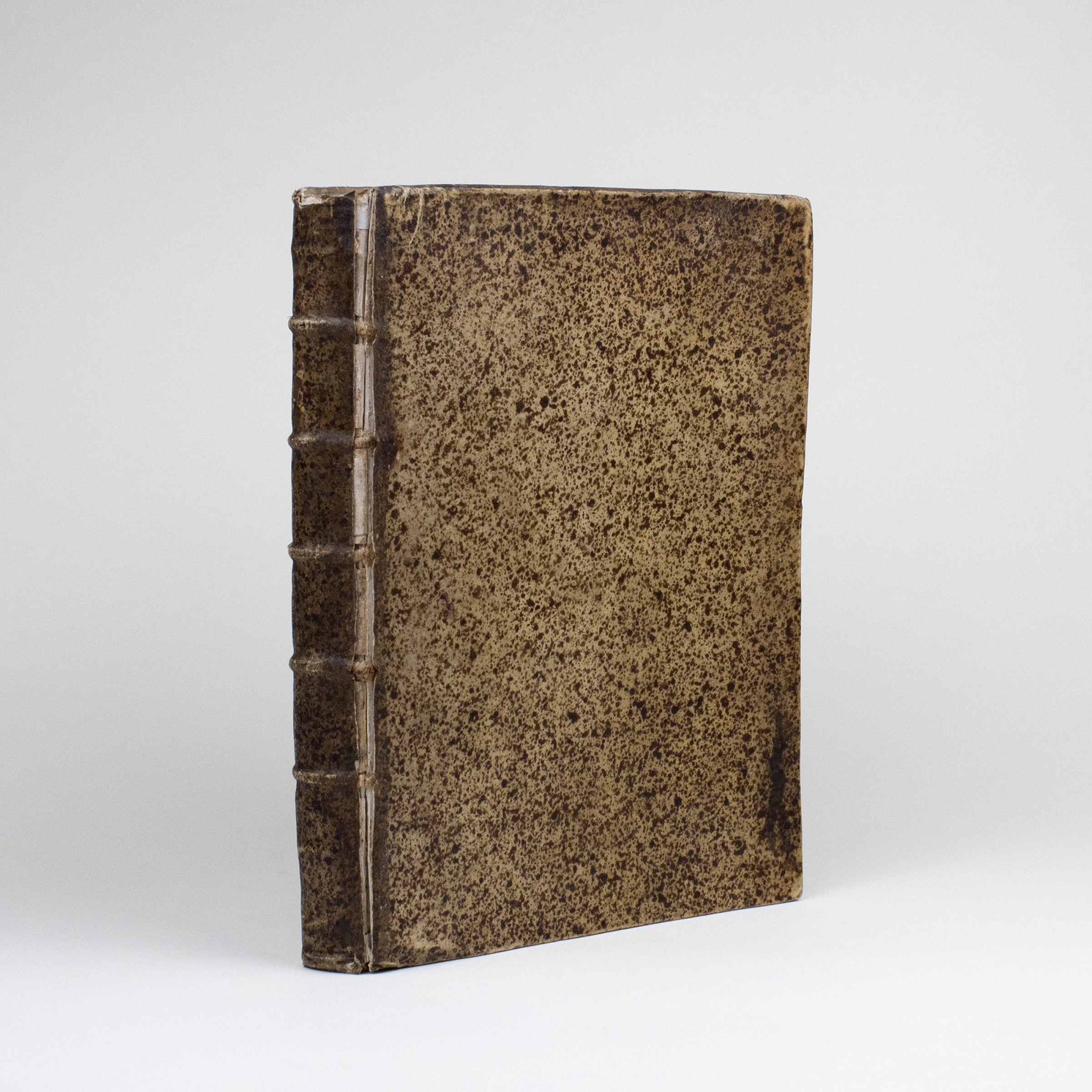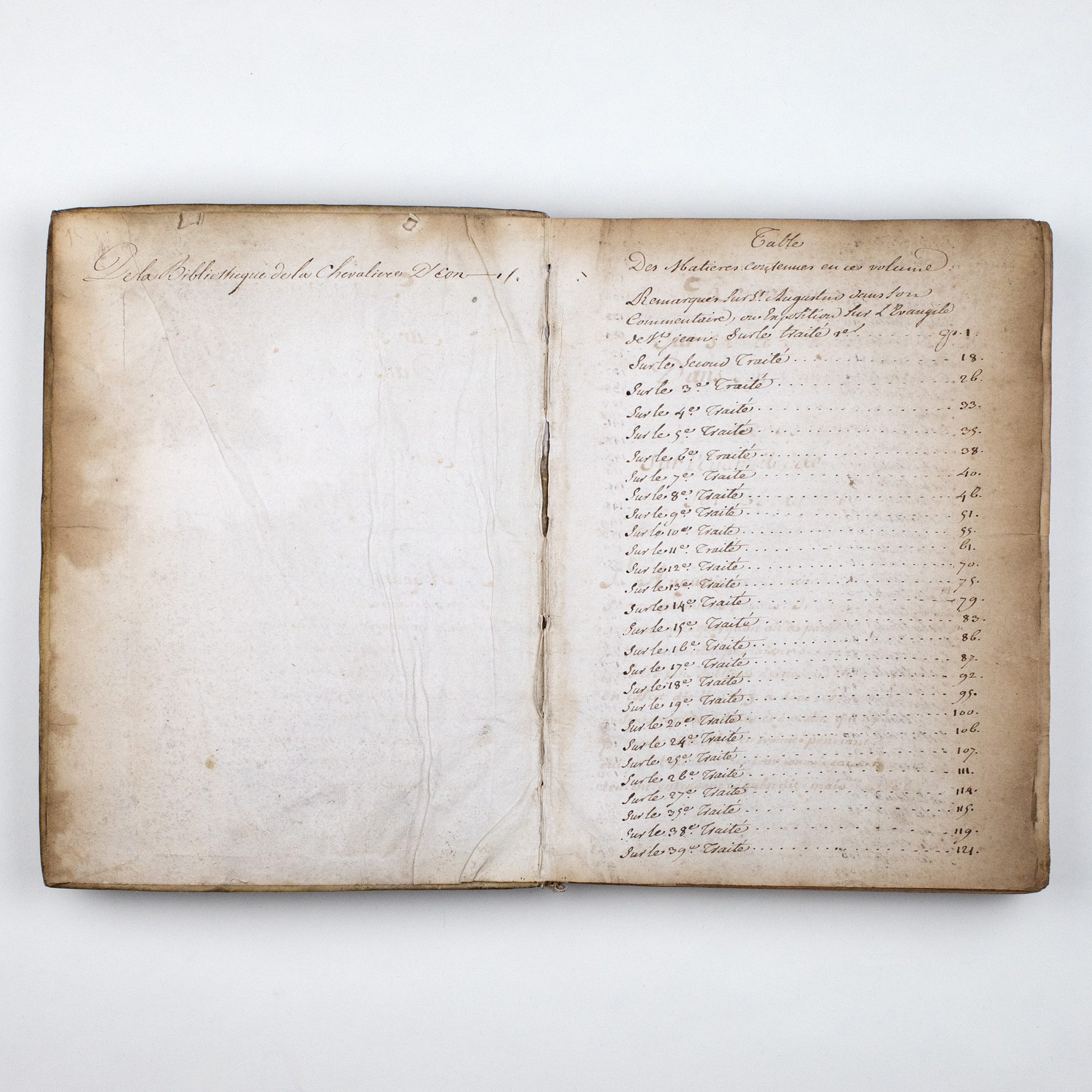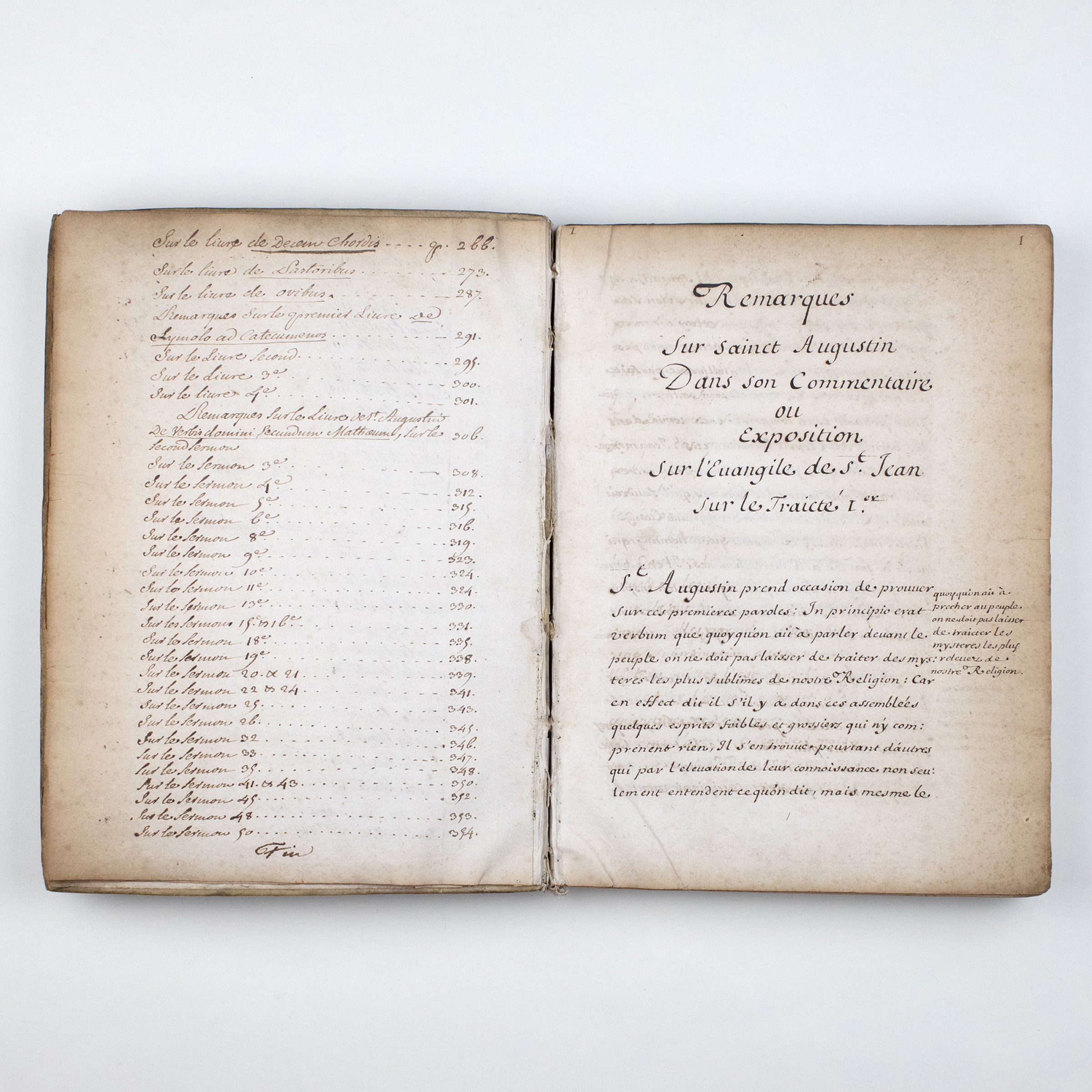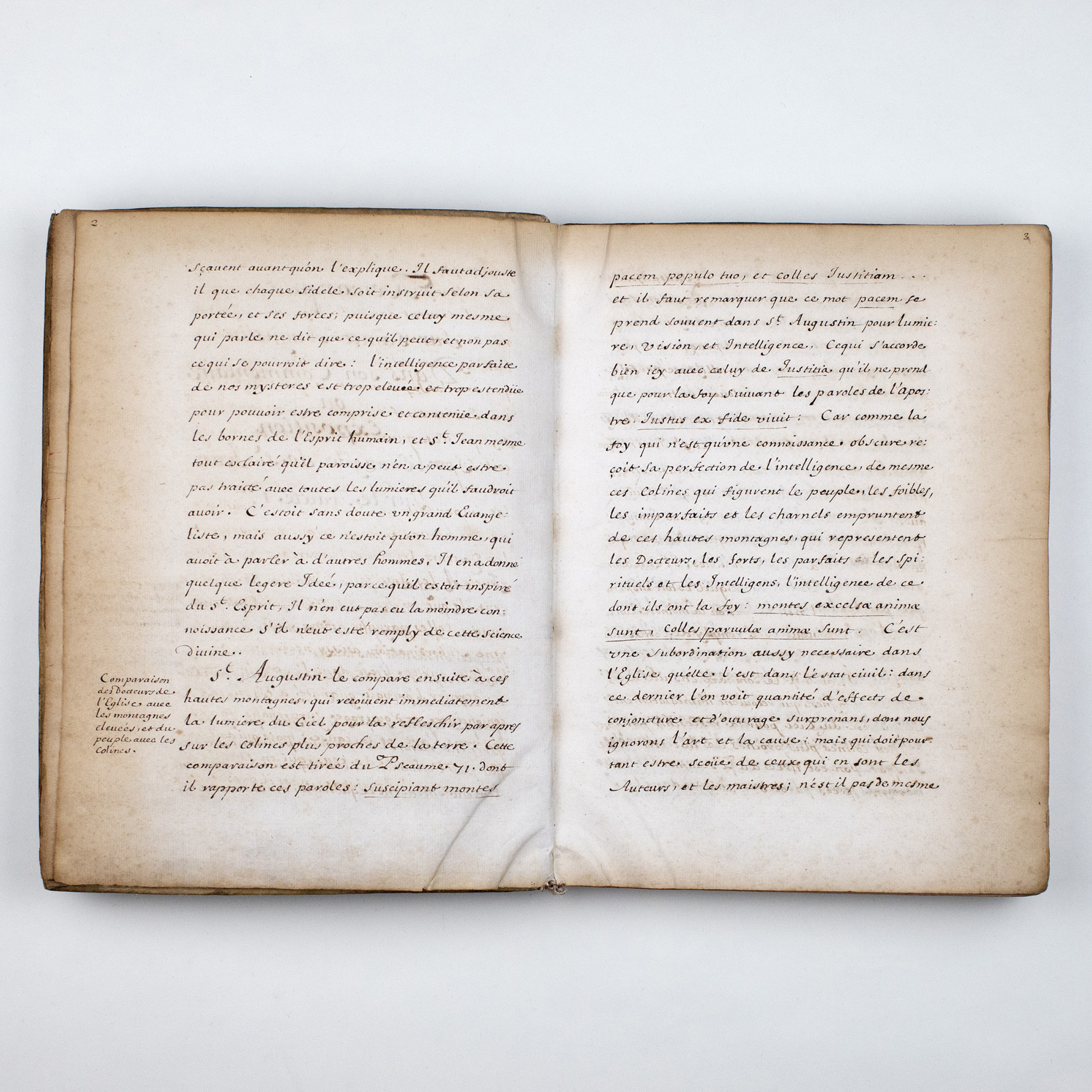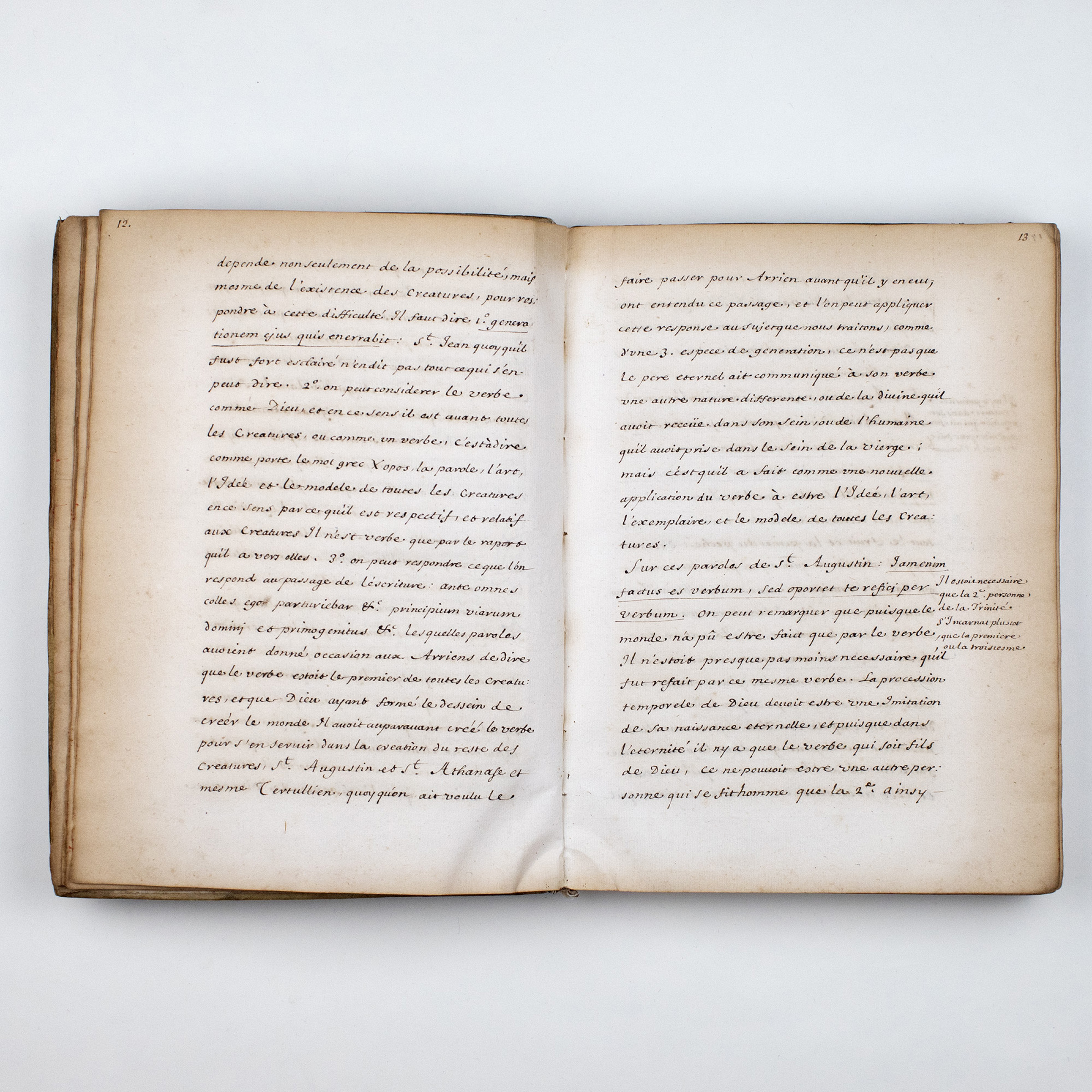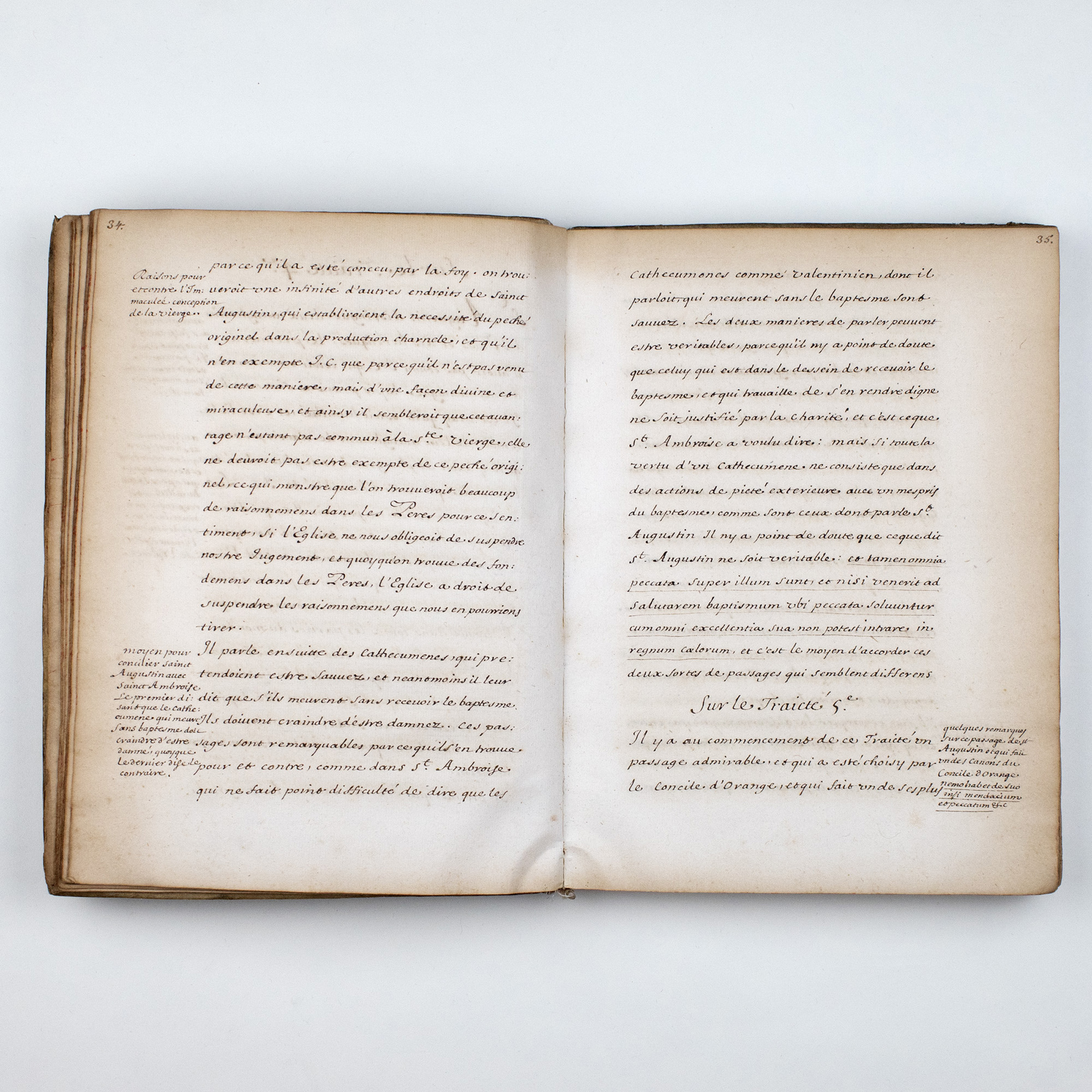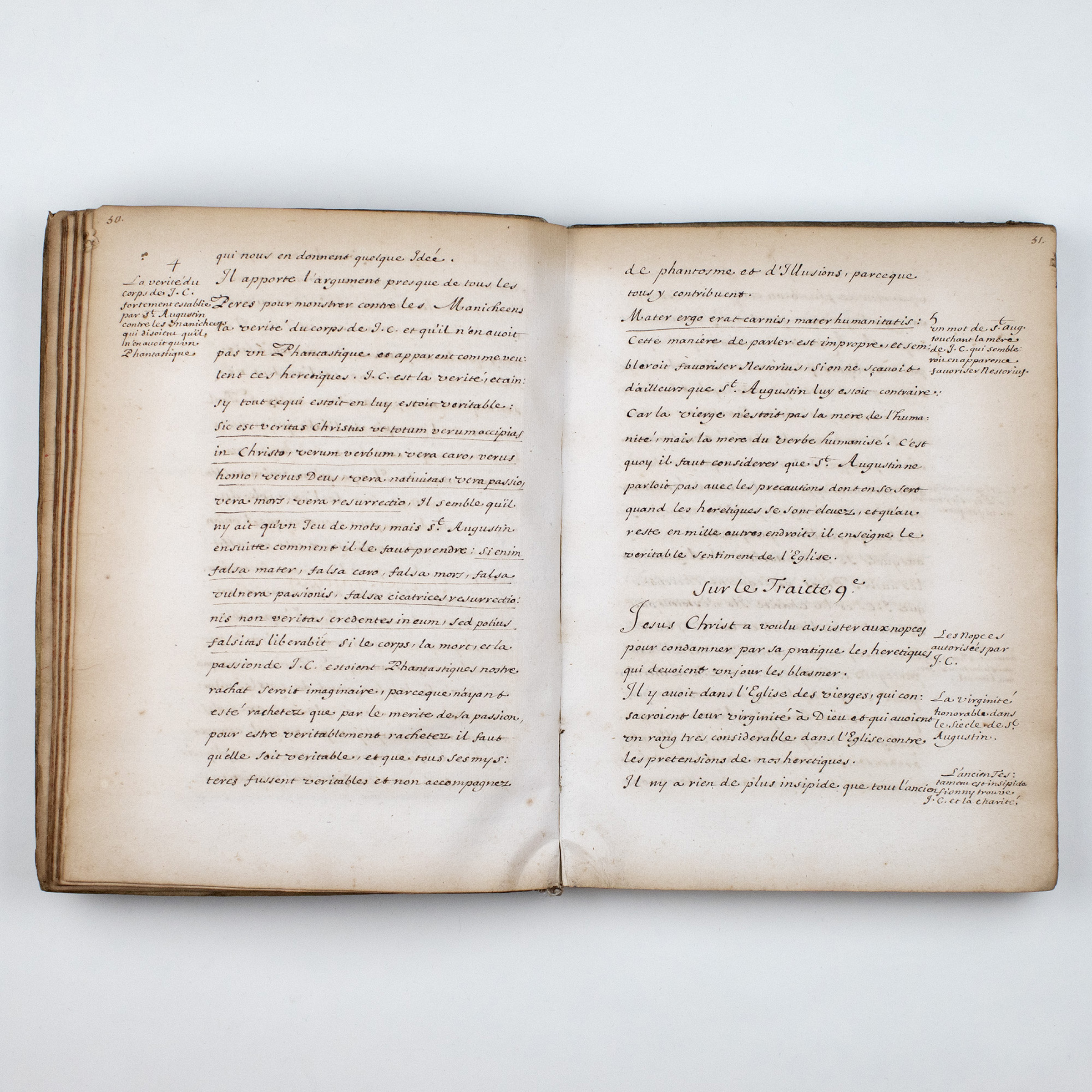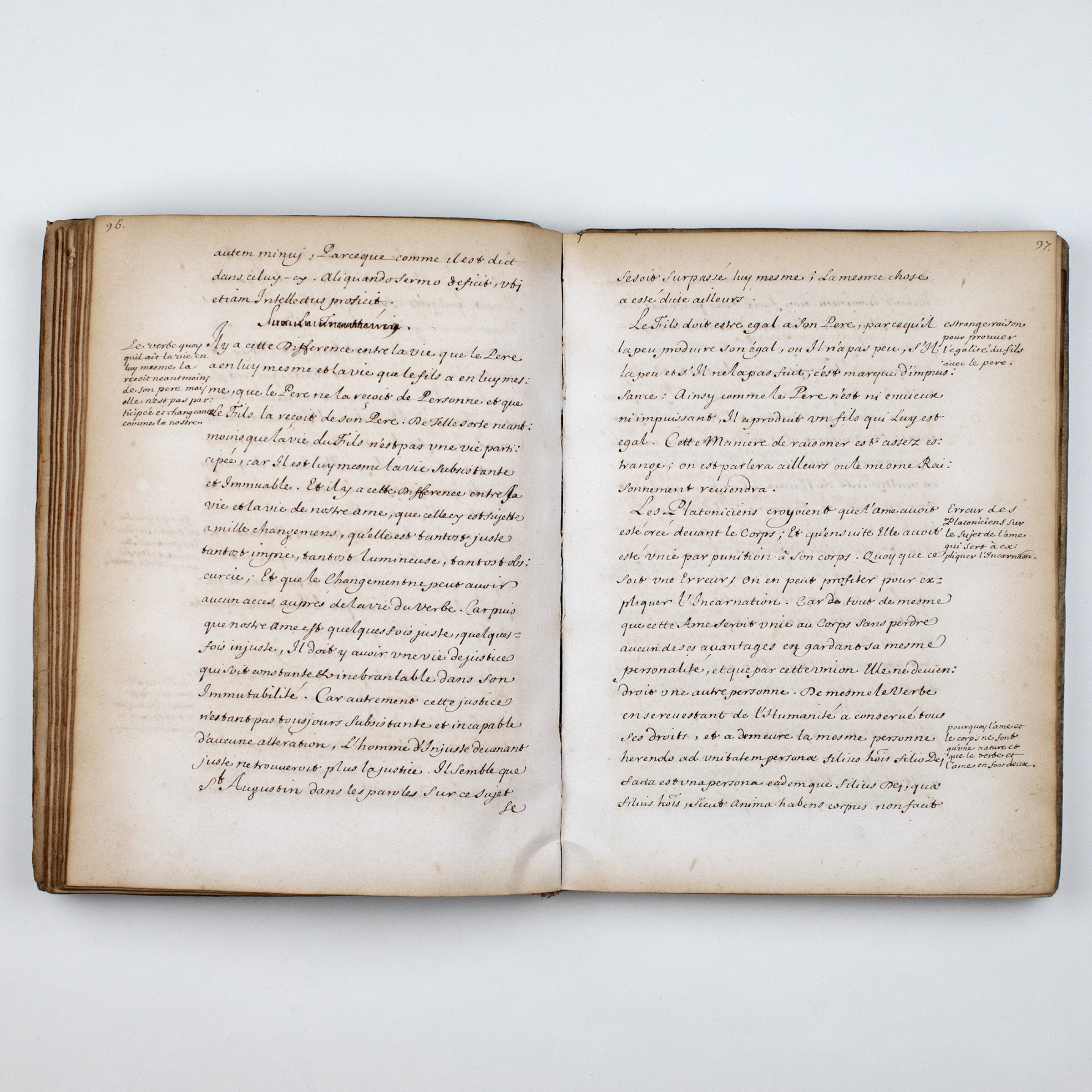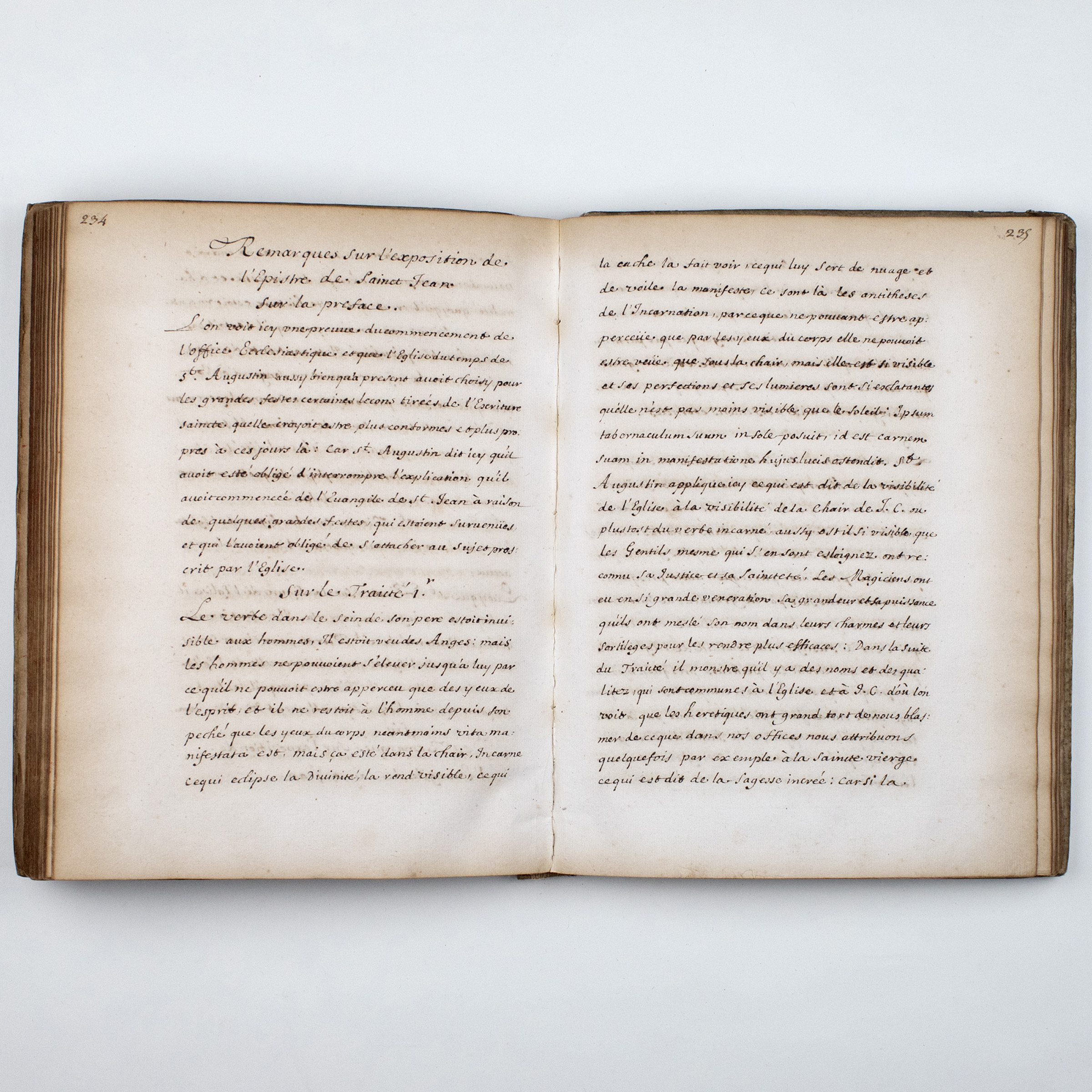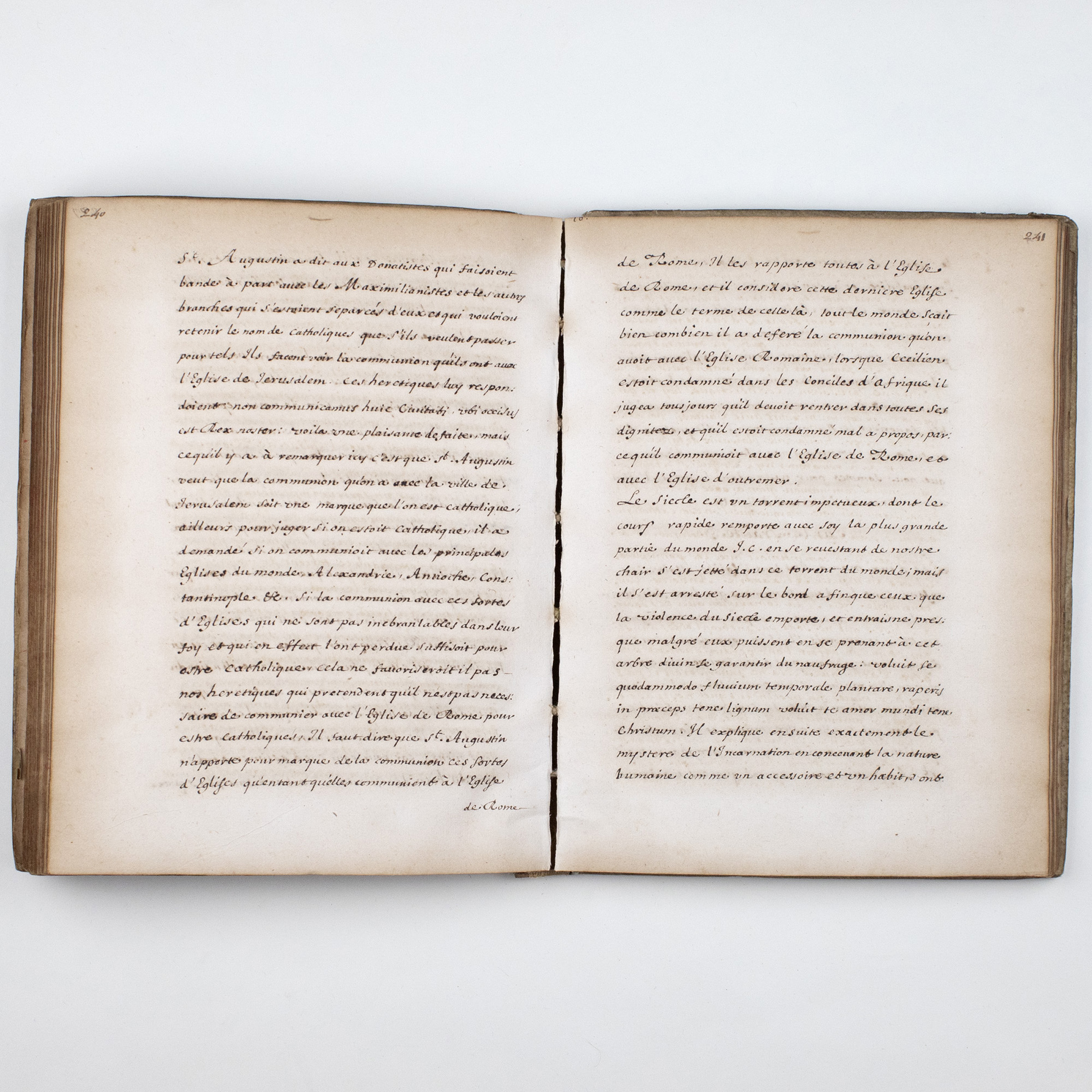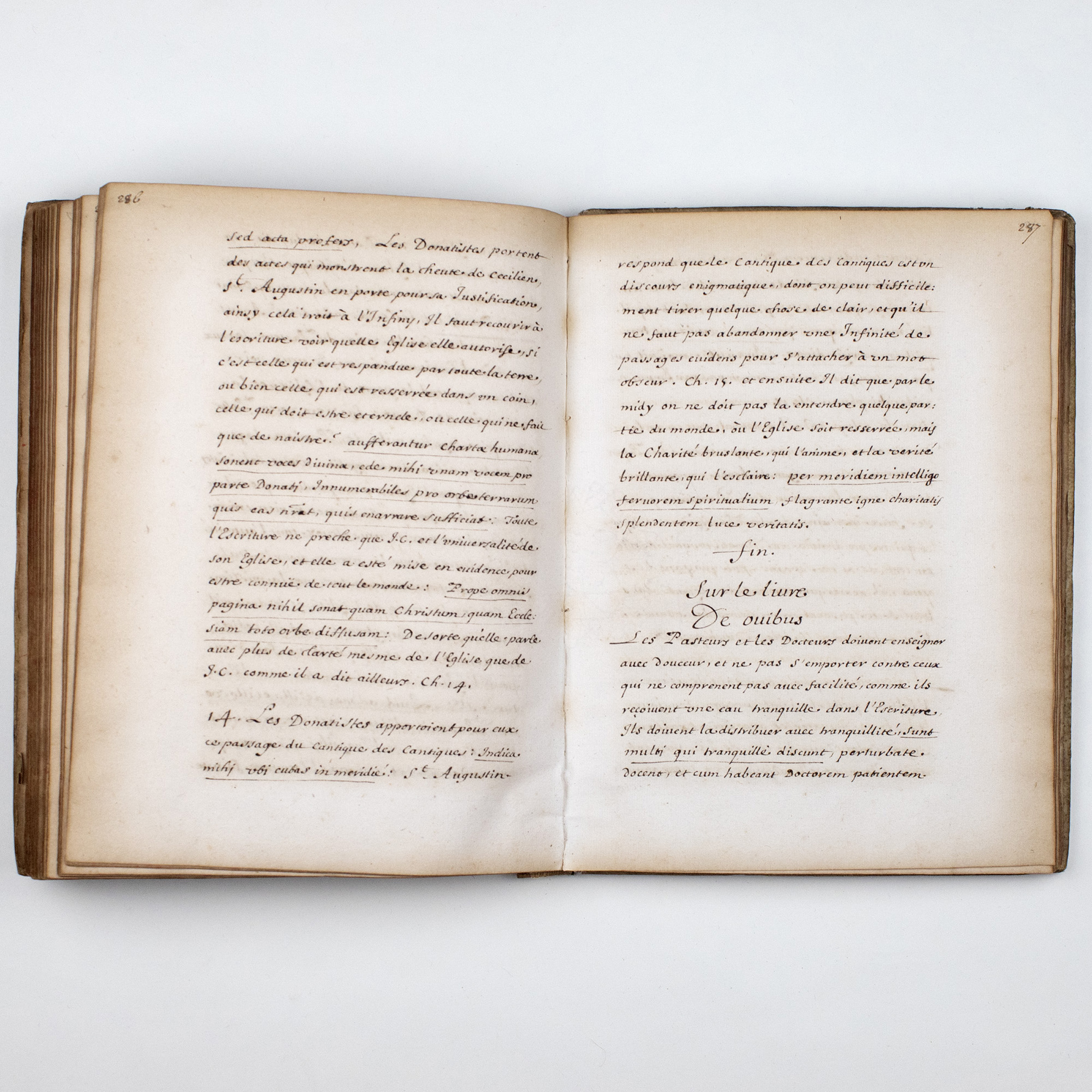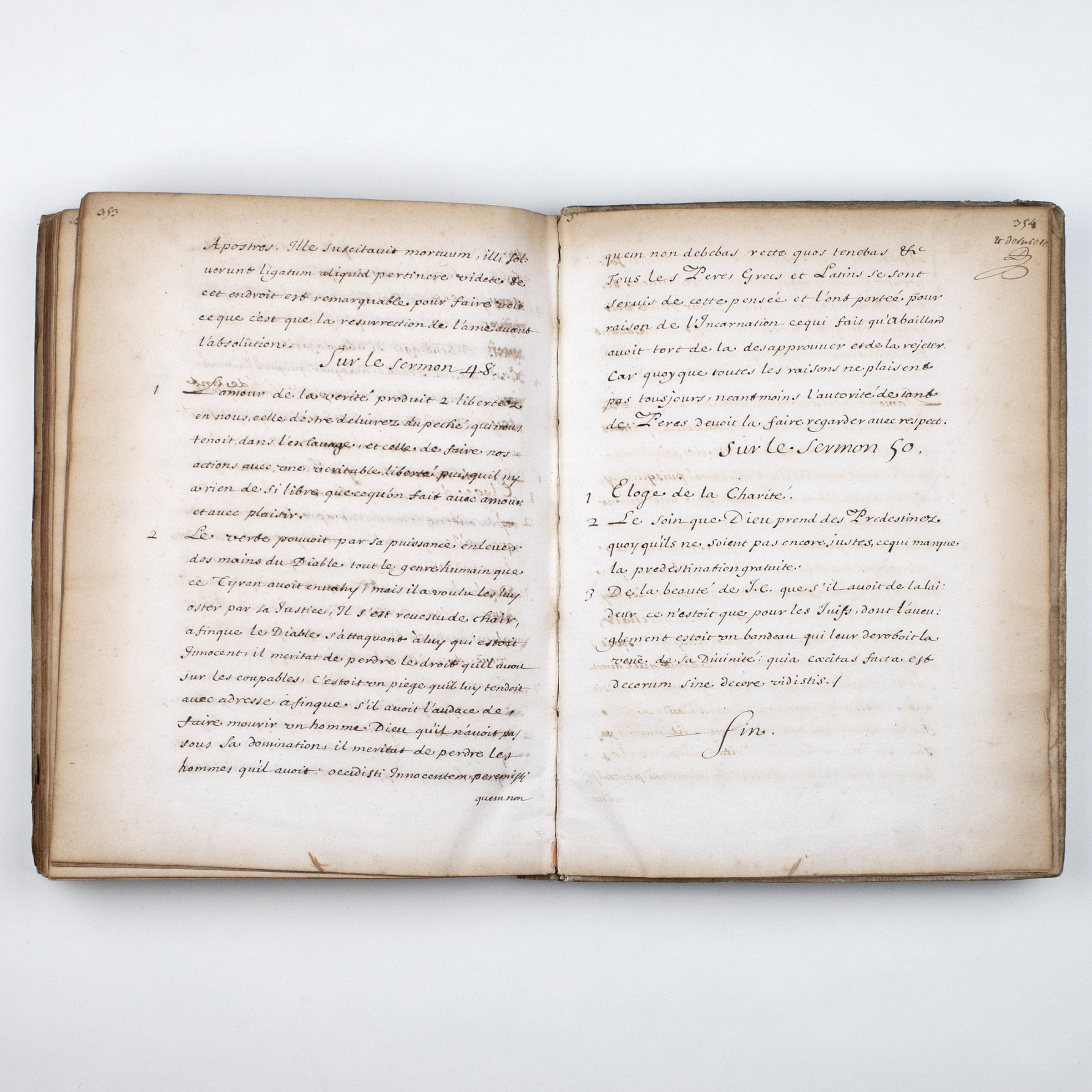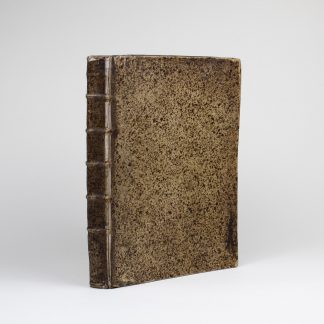Remarques sur Sainct Augustin dans son Commentaire ou Exposition sur l’Évangile de St. Jean sur le Traicté Ier.
[18th century]
In-4 (250 x 185 mm), 354 pp. speckled vellum, speckled edges; cracked vellum revealing the spine (Period binding).
A theological manuscript from the library of the Chevalier d'Éon (1728-1810), arguably the most famous French spy and transvestite of the 18th century.
The pagination and the four table pages that open the volume are autographed by the Chevalier, with his initials on the last page number.
These notes indicate the Chevalier's interest in this manuscript. Is it a volume from his library in Tonnerre, which he may have studied as a young man or during his house arrest between 1779 and 1785? Or does it come from his London library?
The front cover is inscribed De la Bibliothèque de la Chevalière d'Eon, perhaps in 1900 when this manuscript was sold at auction (Catalogue de livres anciens et modernes d'ouvrages en nombre et d'une collection très importante d'autographes, de documents manuscrits et de livres divers provenant de la bibliothèque du chevalier d'Eon. Paris, E. Paul et Guillemin, March 5-10, 1900. Part of lot n°921).
Charles d'Éon de Beaumont (1728-1810), also known as the Chevalier d'Éon, was a diplomat, spy and man of letters, famous for his taste for cross-dressing and the fluidity of his sexual identity. The Chevalier changed gender, was officially considered a woman and lived in feminine clothing for the last thirty years of his life. He is also considered one of the first French spies, playing an important role for the Secret du Roi, notably under the pseudonym of Lia de Beaumont.
At the start of the Seven Years' War, disguised as a woman, he became Czarina Elisabeth I's reader in St. Petersburg, where he successfully pleaded the French cause. At the end of the conflict in 1762, defeated France sent the Chevalier d'Eon to London to take part in the peace treaty negotiations. He distinguished himself by stealing a key English document, and was tasked with drawing up a plan to invade the country.
In 1763, d'Éon de Beaumont was stripped of his ambassadorship when he attempted to negotiate the handover of his plans to the Comte de Guerchy, after Louis XV abandoned the project. The king asked the English authorities to extradite the Chevalier, but they refused.
The Chevalier gradually fell into oblivion, but caused a scandal by dressing as a woman and claiming that he had always been one. Louis XV demanded that the former ambassador clarify the situation, which the Chevalier did, solemnly declaring that he was a woman. He was now officially considered as such. Dressed by Rose Bertin at Marie-Antoinette's expense, he was presented to the Court in a basket dress and corset in 1777. He was exiled to Tonnerre in 1779 when he wore his now forbidden dragon outfit several times. He returned to Britain in 1785, but financial problems forced him to sell his library in 1791 to Mr. Christie. He died in poverty in London in 1810.
6 800€
In stock
Contact us